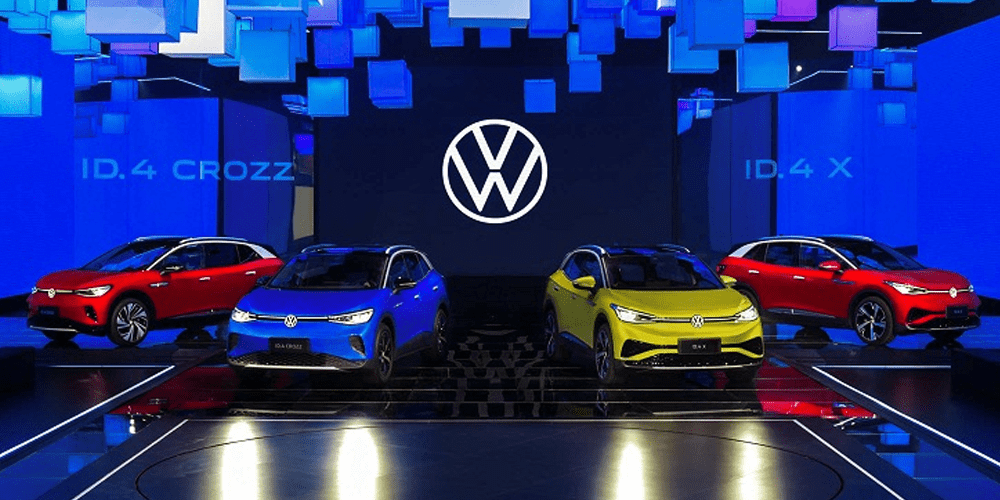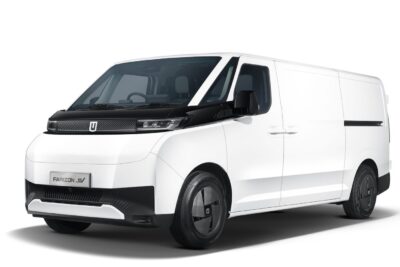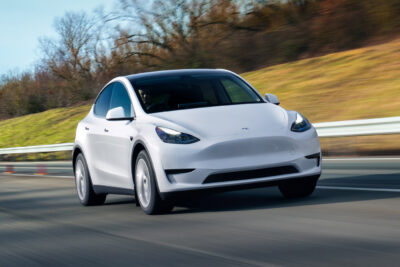Volkswagen to buy CO2 credits from Tesla in China
Volkswagen has purchased CO2 certificates from Tesla in China, the Reuters news agency reports. The deal appears to involve VW’s joint venture with FAW, with an agreement already in place.
VW and its Chinese joint venture FAW-Volkswagen have agreed to comply with the People’s Republic’s increasingly stringent emissions regulations, Reuters quoted three people familiar with the matter.
The CO2 certificate trade was the first of its kind between the two companies in China. Reuters regarded it as a sign of the “scale of the task Volkswagen faces in transforming its huge petrol carmaking business into a leader in electric vehicles to rival Tesla.”
Volkswagen declined to comment on the deal but said it was “strategically targeting to be self-compliant” with rules in China, but that if required, it would buy credits.
Tesla did not respond to Reuters’ requests for comment either.
It is unclear how many green credits FAW-Volkswagen will buy from Tesla, but FAW-Volkswagen’s offer was around 3,000 yuan per credit, higher than prices in previous years, the sources said.
The news agency added that Volkswagen would thus essentially finance its competitor. At the same time, Volkswagen is to roll out five electric car models in China this year. Only the MEB arrival has been relatively slow. The VW ID.3 was intended for Europe-only. Only the ID.4 is to become a global EV for the carmaker. In China, the ID.4 will arrive as ID.4 X made by SAIC-VW and ID.4 Cross build by FAW-VW.
In the meantime, it appears that the ID.3 could also be built and sold in China, allegedly this year as reported. Volkswagen also wants to present a larger E-SUV for China, the ID.6, in April. However, it will be months before these two models contribute to lowering Volkswagen’s CO2 emissions in China.
Volkswagen’s Chinese JVs play a key role in the Group’s plan to increase electric vehicles’ share to 35 per cent by 2025. In absolute figures, there is talk of 1.5 million electric cars by 2025, with one-third projected to be covered by the ID.4. By 2023, the German carmaker plans to offer eight models of the ID. family in China.
First CO2 deal for Tesla in China
Manufacturers in China are awarded green credits that can be offset against negative credits for producing more polluting vehicles. As in the United States, they can also buy green credits to ensure compliance with overall targets, though trade is usually between companies that share a major stakeholder. This is not the case for Tesla and FAW-Volkswagen.
State-owned FAW maintains the joint venture with Volkswagen and two joint ventures with Toyota: the Tianjin FAW Toyota Motor Company and the Sichuan FAW Toyota Motor Company. There are also two joint ventures with Mazda.
While Tesla is already active in certificate trading in other parts of the world and generated $1.58 billion in revenue from it in 2020 – for example, from the CO2 pool with Fiat-Chrysler – Tesla has not yet signed any such deal in China. Tesla has been building vehicles there since 2019 and receives “green” credits for them without exception – FAW-Volkswagen, on the other hand, comes up with a particularly high proportion of negative credits. The JV sold 2.16 million cars last year; however, mostly ICEs and not the electric models also apply to Volkswagen’s second China joint venture with SAIC. This set them among the most polluting automakers in the country in 2019, according to data from China’s Ministry of Industry and Information Technology.
In Europe, Volkswagen has been seen CO2 pooling with other brands and carmakers in an attempt to stay within EU emission regulations last year. The so-called CO2 pooling is a controversial method of avoiding fines given tightening carbon emission fleet values in the EU. Essentially it undercuts the EU Emissions Trading Scheme (ETS) and allows companies to count their fleets as one. Greenpeace in Germany had also accused Volkswagen of registering a “disproportionately high number” of the first ID.3 cars to their dealers in an attempt to avoid fines. Volkswagen denied the said allegation.





0 Comments